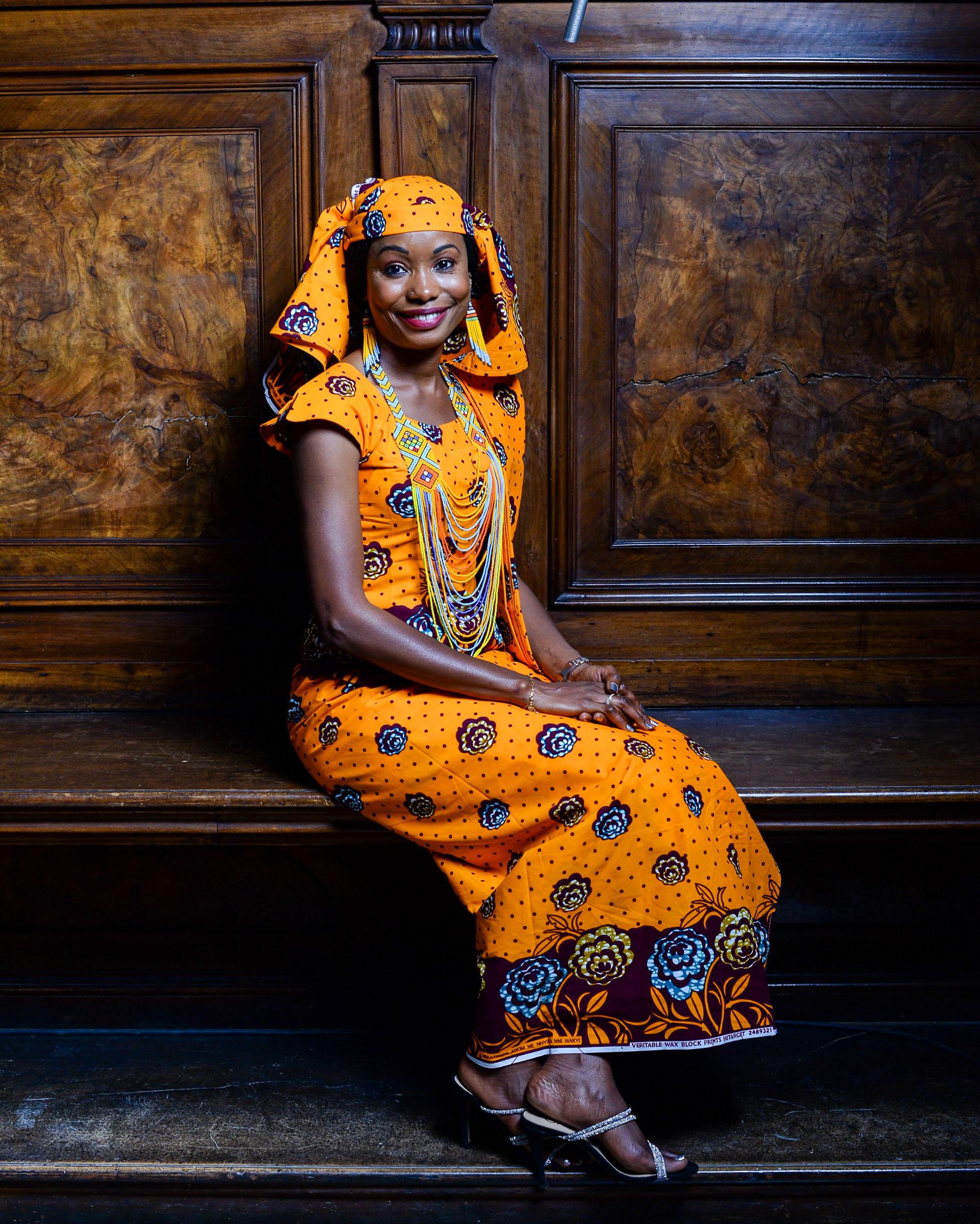As a member of Chad’s Mbororo pastoralist community, Hindou Oumarou Ibrahim has long campaigned to have Indigenous voices included in global climate negotiations, arguing that such communities are at the forefront of climate change. This year she is advising the COP 28 presidency on indigenous rights, and solutions. A TIME Next Generation Leader and a member of TIME CO2’s Strategic Advisory Council of Global Climate Experts and Sustainability Leaders, Ibrahim spoke with TIME on the eve of the climate negotiations in the United Arab Emirates that start on Nov. 30. The interview has been edited for length and clarity.
TIME: You are one of the leading voices at COP this year, on the President’s Advisory Board. What’s your priority?
Ibrahim: We are now on 28 years of negotiations and seven years after Paris, [which brought us] the big, legally binding, agreements to reduce emissions. But emissions are still going up and up and up. [Last week] the world hit a record of 2°C [above pre-industrial averages]. It’s so frustrating and so unacceptable to continuously go to the COP, and ask the same demand, hear the same answer, and go back with no hope. So, this year, I want to see the phasing out of fossil fuels, full stop. As long as we are avoiding the discussions of ending fossil fuels, we will never end the issue of climate change. This is the number one thing I want to happen at COP.
You are also coordinating the Indigenous People’s Pavilion this year. What role should Indigenous movements play in the negotiations?
It is easy for everyone to say we protect 80% of the world’s biodiversity, [that] we are the guardians of the ecosystem. They say, we applaud you. Well, we don’t want them applauding us. We do that naturally because we care about nature because we know that this is our life. We are not coming as victims. We are bringing solutions. It is our knowledge, our wisdom, our technology that can stop climate change.
For example, my community are nomadic pastoralists. The stopping points for our cattle are the most fertile because we know to keep balance between our needs and nature. We stay two, three days in one place then we move to another one. We know that allows the cow dung to become fertilizer for the land, instead of emitting methane. What we need is very simple: the recognition of the critical role of Indigenous peoples’ knowledge in the COP decision-making process.
The United Nations Emissions Gap report finds that the world is heading for a temperature rise far above the Paris Agreement goal of less than 2°C, at which point scientists say that humans will have difficulties adapting to intensifying wildfires, heat waves, drought, storms, and floods. Do you think global leaders understand the urgency?
Those leaders are very far from reality. They don’t care if climate change is making it too hot because they can put their AC on. They don’t care if it is cold because they can put the heaters on. They do not know that in my community we do not have water to drink, and that people get into fights to get access to water points [for their animals]. They are not acting fast enough, because they are not seeing the urgency enough. We should take all those leaders to Chad and let them live there for just one month. Maybe then they will change the world because they will care about what’s happening.
You recently signed a pledge calling for the Global Plastics Treaty, which is being negotiated this year, to end unessential plastic production. What is the connection between plastic pollution and climate change?
Plastic is not coming from the sky. We are extracting from nature to make plastic. So it is also abusing natural resources without restoring them. Plastic is very useful, for sure. But we do not need plastic for [everything], and we are not using it properly. Because if you use it properly, you also reuse it, not single use. And then you recycle it so that it cannot end up in the ocean. Plastic that cannot be recycled, they send it to the developing world. This is the injustice. The tons and tons of the garbage that they cannot use, they send it to Africa or Latin America.
What are you most optimistic about when it comes to COP 28?
I’m optimistic because we have young people around the world who are all standing in the same position. They want to end fossil fuels, and there is no negotiation. For the first time COP has a youth envoy, and [global leaders] are very scared about what the young people are going to say. They’re very scared because if young people start protesting, it is so bad for the politics. So that gives me hope.
What is your biggest concern?
The end game of this COP is very worrying for me. I don’t want vague commitments. If we get something on fossil fuel [drawdowns] are we going to have a roadmap that everyone respects? I want to know what they are going to do by 2029, what they are going to do in 2030. We haven’t hit our goals on emissions, on finance for adaptation, on funding for resilience. If countries [aren’t reaching their] goals, what are the repercussions?
- What Student Photojournalists Saw at the Campus Protests
- How Far Trump Would Go
- Why Maternity Care Is Underpaid
- Saving Seconds Is Better Than Hours
- Welcome to the Golden Age of Ryan Gosling
- Scientists Are Finding Out Just How Toxic Your Stuff Is
- The 100 Most Influential People of 2024
- Want Weekly Recs on What to Watch, Read, and More? Sign Up for Worth Your Time
